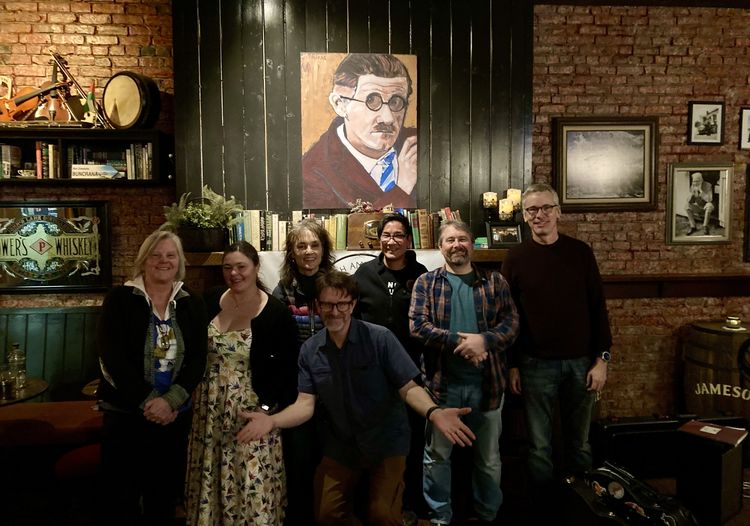By Frieda Klotz
Wearing jeans and a white aertex t-shirt with the FAI logo, Alisha Jordan looked a picture of health on a recent afternoon in the Bronx neighborhood of Woodlawn.
The 20-year-old GAA football player, who had been assaulted on Katonah Avenue earlier this summer, was fresh and upbeat. Eager to move on, she said she was tired of staying at
home and looked forward to returning to work.
"The doctor said they couldn't believe how well my skin was healing," she said, "so I can't complain about that."
Jordan was walking home from a night out with a friend when she was struck from behind by a man carrying a brick in July. She suffered extensive injuries including a fractured skull and a nose broken in seven places.
The detail of what happened is still with her. It was just like any other evening, although she had noticed a man acting strangely, talking to a wall. The first
blow came silently.
"I didn't hear a bit of him," she said. "I didn't hear anything. But as soon as he hit me, I knew it was that guy I had seen earlier."
She began to scream.
"I don't think I'll ever forget the pain that I felt. But it was the blood more than anything that was scary because I couldn't see a thing and it was all over my clothes and I was on the ground. It was so surreal."
Next, the man ran towards her friend, and they tussled before he disappeared, leaving his ripped wife-beater shirt behind. A crowd, mostly Irish people, gathered around the young women, and they kept telling her that everything would be okay; then an ambulance brought her to hospital.
"I remember five or six doctors coming over and I had things in my arms," she recalled. "I remember them saying, 'fractured skull,' and that scared me. I remember at that point trying to move my feet and I could. So I was like, things aren't that bad."
Since that traumatic night, Jordan has worked on her recovery, putting her mind toward getting better both physically and psychologically. At first, it was very hard. Almost blind, she suffered pains in her head and could barely move, needing assistance from friends to do anything.
But more recently she has been getting back into exercise, going on short runs just around the block; and she is scheduled to return part-time to her bartending job this week. One of the first questions she asked the doctor after her seven-hour surgery was whether she would be able to play football again. Within six months, it might be possible, as long as she wears a protective mask, which is currently being made in Michigan.
"It's made of something a lot stronger than plastic," she said. "It completely covers my forehead where the plates are, my nose, it covers everything."
Alisha has devoted her efforts to recovering mentally too, using the time at home alone to think the situation through.
"I would just sit there and think, like: this was not my fault and I did nothing that night. I did nothing to deserve it," she said.
"I feel like I was just in the wrong place at the wrong time and that's the mindset I've
had from the very start. I don't feel like it was anything to do with me. I don't think
he was targeting just me. But just - I just dealt with it logically. and I haven't let it
upset me at all after that point."
It's not entirely clear whether the attacker is still at large. Jordan and her friend identified a man in a photo line-up, but in the actual line-up she was not sure enough to pick anyone out, and she didn't want the wrong person to get in trouble.
The outcome now hinges on DNA evidence from the ripped shirt, which takes several months to process. In the meantime, Jordan said the police have told her the man whom they think committed the crime is in jail for another offense.
But there is a still sense of anxiety. "Until he's gone, it's always going to be that little niggling thing in the back of my head, no matter where I go," she explained.









